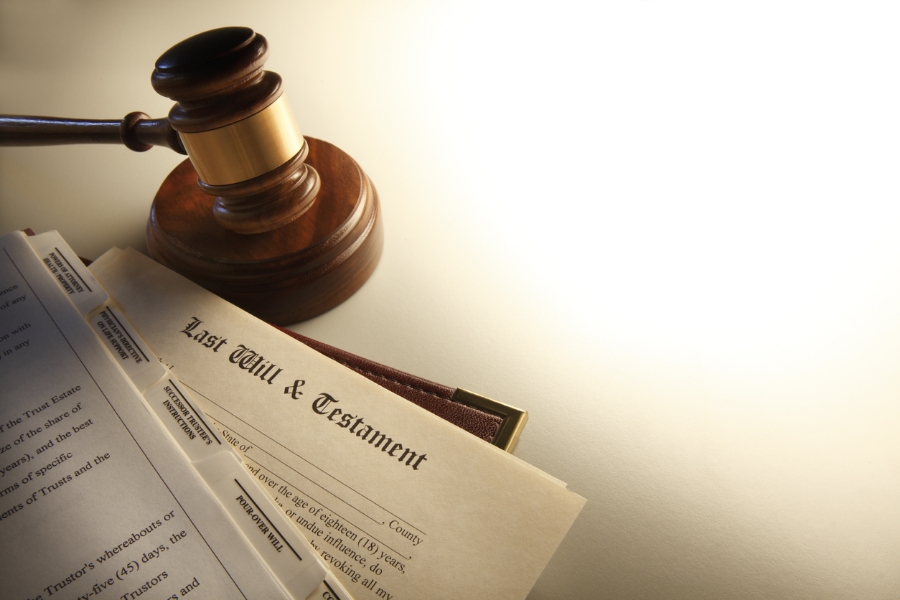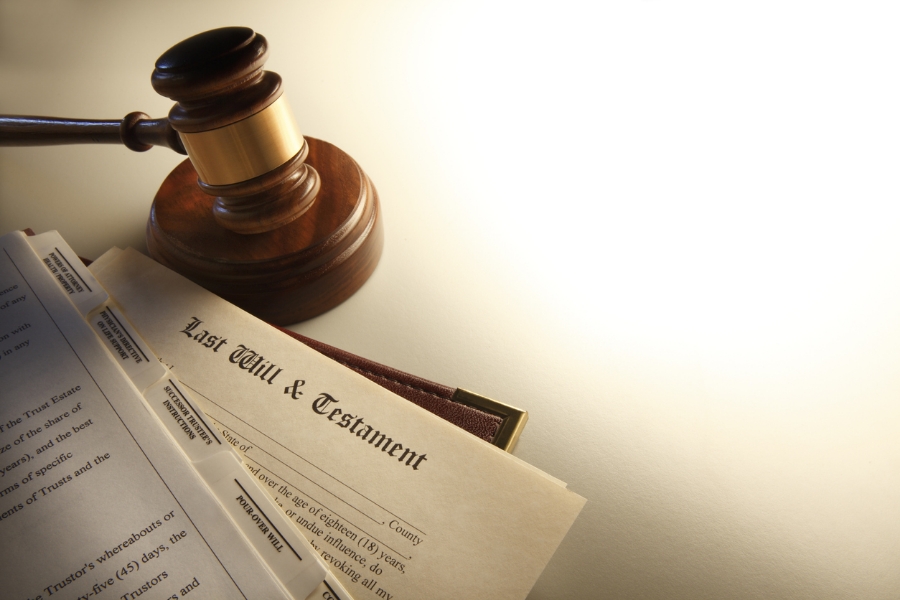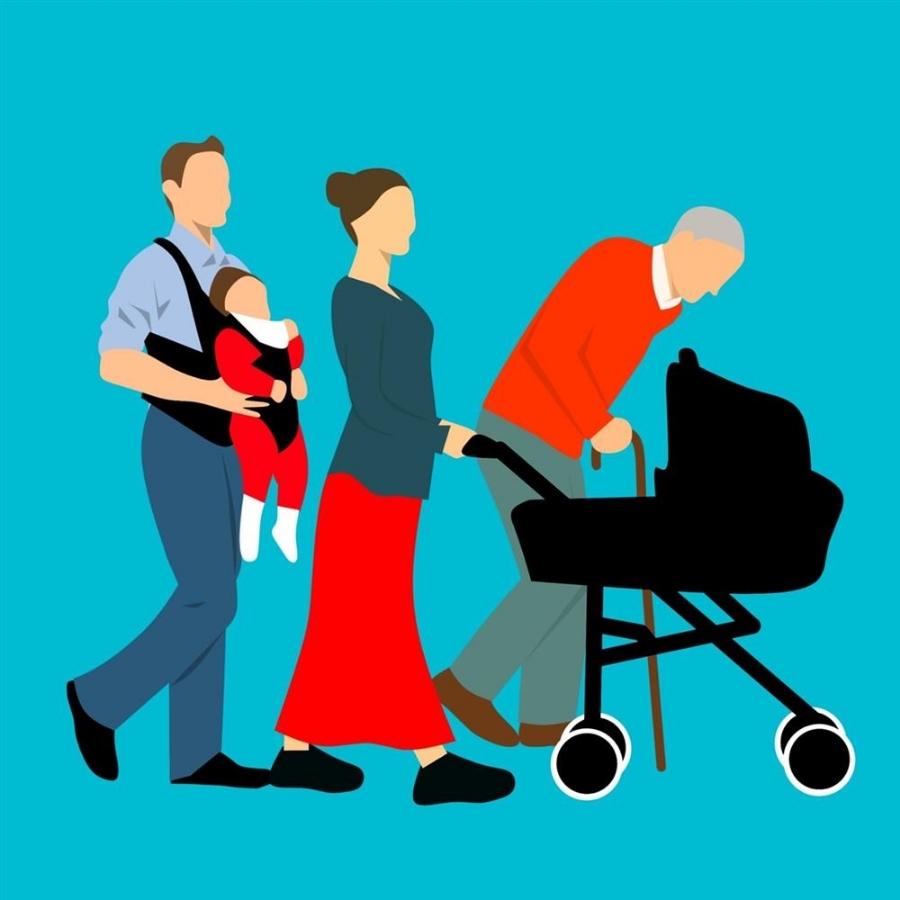Your financial needs change throughout your life as well. What was important to you at 25 may not matter at all by the time you hit 50. The priorities of middle age wouldn't even have entered your mind back then. And your personal and estate planning strategies should change right along with those life stages.
Blog
When most people think of estate planning (if they think about it at all), they usually think it means making a Will. But estate planning is much more than just that. It is a process of wealth management, strategic future planning and documentation that will ensure that your estate is distributed and your loved ones are provided for in accordance with your wishes.
Those of us who are members of the Baby Boomer generation who are still lucky enough to have one or both parents living are now facing some tough decisions when it comes to caring for our parents. It is important to help them retain their independence and personal dignity for as long as possible, but if they are reaching a point where they cannot manage everything (whether due to physical or mental deterioration, or a combination of both), it becomes necessary to appoint someone close to them to take over those actions and decisions that they are no longer able to handle.
You remember the old adage - the only things in life that are certain are death and taxes. I assume you pay your taxes every year. But have you addressed the other part of that equation? Or are you one of those people who are putting it off because you don't want to face the certainty of your own mortality? Almost three-quarters of North American adults have not made a Will. That's a frightening statistic, when you consider the consequences of dying intestate (without a Will), and the costs that your loved ones will incur to administer your estate.
There are a few very important legal documents that everyone should prepare to ensure that their wishes are followed and that their loved ones are taken care of. One of these is a Power of Attorney. A Power of Attorney makes sure that your wishes are followed in the here and now, while you’re still alive, but can’t, for some reason, execute them yourself.
A major concern that many people have when drawing up their estate plan is how to reduce the costs that their estate or their beneficiaries will have to pay. We all want our loved ones to reap the full benefit of our estate assets without being burdened by a pile of fees and costs being assessed against those assets. If you are a resident of the USA, you have the option of placing your assets into a living trust as a means to avoid having all of your estate run through probate, and thereby eliminating probate fees.
Q. What is a living trust?
A. A living trust is a trust you create while you’re alive, rather than one that is created upon your death under the terms of your will (which is called a testamentary trust).
When you place property into a trust, the person you have named as the trustee holds legal title to that property on behalf of the beneficiaries of the trust. You can name yourself as the trustee, which allows you to keep full control over all the property held in the trust.
A living trust can help you avoid probate and provide for long-term management of your property. And because there is no probate involved, the terms of your living trust will never be made public unless you should choose to do so.
Q. Do I need a living trust?
A. If you do not own any assets that must be probated (i.e. property owned solely by you or owned as "tenants in common" with someone else), then there is little point to setting up a living trust. The main advantage of a living trust is that any property put into the trust doesn't have to go through probate before it's distributed to the people you've left it to.
Probate is a court-supervised process of paying your estate debts and distributing your property to the people who inherit it – a process that can go on for months and which can cost your beneficiaries a significant amount of money in legal fees and court costs.
Q. How does a living trust avoid probate?
A. Any property you transfer into a living trust before your death will not go through probate because it no longer belongs to you – title to the property has been transferred to the trustee of the living trust, who now holds it in trust for the beneficiaries. Even if you name yourself as the trustee of the trust, you don't actually own the property any more. After your death, your successor trustee will then transfer the property to the beneficiaries. In many cases, the whole process takes only a few weeks, and there are no legal fees or court costs. When all of the trust property has been transferred to the beneficiaries, the living trust ceases to exist.
Q. What are the costs involved in setting up a living trust?
A. A lawyer will typically charge upwards of $1,000 to create a trust for you. A basic living trust isn't very complicated, and you may not even need to hire an attorney to set it up. With a good template, you can prepare a valid Trust Declaration yourself. If you have questions or concerns about the paperwork or the process, you may want to consult a lawyer but you can do much of the work yourself, which could save you hundreds of dollars.
Q. If I have to transfer all my property into the trust, won't that be a lot of work?
A. Yes, because you are transferring ownership of your property into the name of the trustee. That requires filing transfers of title for all property that you want to put into the trust, such as your home and other real estate holdings, stocks, bonds, securities, and other assets that do not have a named beneficiary or that are not jointly owned with another person as joint tenants.
Special language may be required in your trust document to avoid exposure under state income tax laws. This paperwork can be time consuming and tedious, but your family and loved ones will reap the benefits of your attention to the details.
Q. Can I protect my assets from creditors by putting them in a living trust?
A. No. Transferring your assets into a revocable trust will not shelter them from creditors. A creditor who gets a judgment against you can still go after the trust property just the same as if you still held it in your own name. After your death, if a creditor determines that some of your property has passed to a beneficiary, they may decide to go after the new owner to make a claim for your debt against the estate property.
This is one scenario in which probate may be a preferable alternative. During the probate process, all of your creditors of record must be notified of your death and be given a specified period of time in which to file claims against your estate. If they don't file a claim within the specified time period they are legally estopped from ever making a claim for that debt.
Q. If I create a living trust, do I still need to make a Will?
A. Yes, you do. Your Will transfers any property that you forget or intentionally neglect to transfer into the trust before your death. If you don't have a Will, any property that hasn't been transferred by your living trust or automatically transferred by joint tenancy will go to your closest relatives in an order determined by your state's succession laws, which may not distribute your property in accordance with your wishes. Your Will makes it clear exactly what those wishes are, and your executor must distribute the property as you have instructed in the Will.
A standard Will contains a clause called a "residuary estate" clause in which you name the person who will get the balance of your estate property that hasn't been specifically left to any person or entity. But when you are using a living trust, you should consider using a pour-over Will. This is a special type of will that is used in conjunction with a living trust in order to deal with any property which has been (intentionally or unintentionally) left out of the living trust at the time of your death.
Q. Will my family still have to pay estate taxes if I use a living trust to deal with my property?
A. A basic living trust will not help your beneficiaries avoid federal estate taxes, but a more complicated living trust structure can significantly reduce estate taxes for large estates. One example of a tax-saving living trust is the AB trust, which is designed primarily for married couples with children. This type of trust is also called a "credit shelter trust," "exemption trust," "marital life estate trust," and "marital bypass trust." Each spouse leaves property in trust to the other spouse for the duration of his/her life, and then to their children. Creating an AB trust is a more complex process and you should consult a lawyer for advice and assistance.
Image by mohamed Hassan from Pixabay
- 2025
- 2024
- 2023
- 2021
- 2020
- 2019
- 2018
- 2017
- 2016
- 2014
- 2013
- 2012
- 2011










